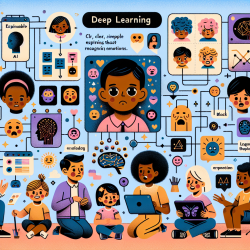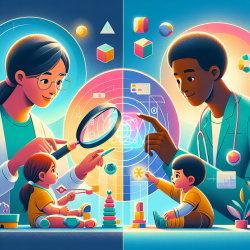Introduction
In the ever-evolving landscape of online education, understanding children's emotions has become increasingly crucial. The research article titled "Kids’ Emotion Recognition Using Various Deep-Learning Models with Explainable AI" offers significant insights into how deep learning can enhance emotion recognition, thereby improving online therapy and educational outcomes.
Understanding the Research
The study utilizes deep-learning models to recognize children's emotions through facial expressions, achieving a remarkable accuracy of up to 90.98%. This is accomplished by analyzing datasets such as the LIRIS Children Spontaneous Facial Expression Video Database and a novel dataset created by the authors. The research highlights the distinct differences in facial expressions between children and adults, emphasizing the need for specialized models.
Implementing Explainable AI
Explainable AI (XAI) plays a pivotal role in this research, offering transparency in how deep-learning models interpret emotions. The study employs three XAI methods—Grad-CAM, Grad-CAM++, and SoftGrad—to visualize and explain the features contributing to emotion detection. This approach not only enhances model accuracy but also builds trust among users by providing clear rationales for emotion recognition.
Applications in Online Therapy
For practitioners in speech-language pathology, these findings offer a data-driven approach to improving online therapy sessions. By integrating emotion recognition technology, therapists can better understand and respond to children's emotional states, leading to more effective interventions. This technology can be particularly beneficial in remote settings where visual cues are limited.
Encouraging Further Research
The study opens avenues for further exploration in emotion recognition, particularly in creating more diverse and comprehensive datasets. Practitioners are encouraged to engage with this research and consider how these technologies can be adapted and implemented in their practice to enhance therapeutic outcomes.
Conclusion
Incorporating deep learning and explainable AI into emotion recognition for children presents a promising frontier in online therapy and education. By leveraging these technologies, practitioners can significantly enhance their understanding of children's emotional states, leading to improved educational and therapeutic outcomes.
To read the original research paper, please follow this link: Kids’ Emotion Recognition Using Various Deep-Learning Models with Explainable AI.










